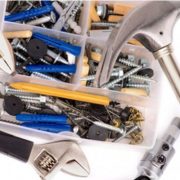Safety Tip of The Week: Keeping Tabs on Tools
As you know, Force’s number one priority is safety. We are a premier provider of safe and reliable access equipment hire, but safety goes beyond just the integrity of access equipment and elevating work platforms. We’ve highlighted different ways to increase safety, like precautions to take when it rains. Another safety essential is keeping tabs on tools. Here’s what you need to keep in mind.
The Basics
Tools should only be used as intended; always use the appropriate tool for the job. If you are working on an elevating work platform hire and you realise you need a hammer but you only have a pipe bending tool, you’re going to have to go back to ground level. Tools are most dangerous when they are faulty, so keep them well-maintained. The minute a tool stops working properly, it needs to be fixed or replaced. Make sure your workplace has a procedure for regularly checking on and maintaining tools.
Lastly, worksites should always be well lit. In many cases, you might need to bring in additional lighting; make sure it’s properly secured if you are working at height. Walkways should be kept free from debris and tripping hazards, and always store tools in a safe, designated spot.
Hand Tool Specifics
There are loads of hand tools on jobsites, including everything from spanners to chisels. All tools with a blade need to be regularly sharpened, as dull tools are far more hazardous than sharp ones. When working with hand tools that might produce sparks, ensure there are no flammable substances nearby.
Because many hand tools are small, these are easier to drop. Even a seemingly light-weight tool will cause serious damage to property and/or people if dropped from an 18m scissor lift. Always make sure the area beneath an EWP is a no-walk zone. If multiple hand tools are being used simultaneously, you should consider using a net guard.
Power Tool Specifics
For all types of power tools, the cord or hose needs to be well maintained. Keep them away from heat or anything sharp. Never carry a tool by the cord or hose or roughly pull it to disconnect it from a power source. Power tools need to be kept dry, so never operate power tools near water. If you see a cord that is frayed or damaged in some way, it needs to be replaced; it is never OK to tape a cord.
In addition to maintaining power tools’ cords, also keep tabs on its other parts, such as blades. Check fluid levels regularly, if applicable. For power tools with moving parts, make sure your equipment has a safe guard. Every aspect of a power tool should be in top condition at all times.
Remember…
For both hand tools and power tools, one of the biggest risks is that it’s easy to get overly comfortable working with them. Make sure to have regular safety training meetings as a refresher on how to work safely with tools.



